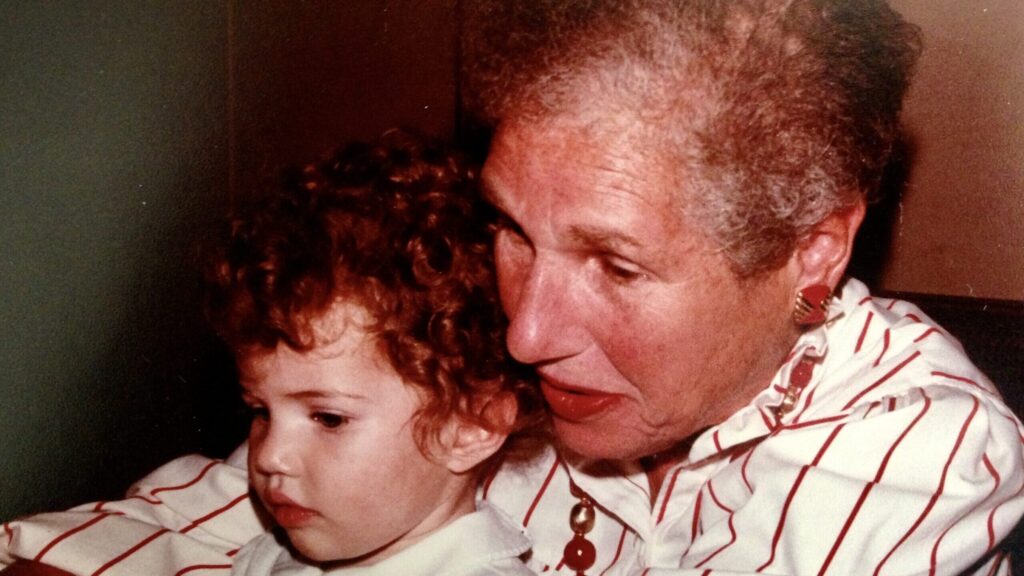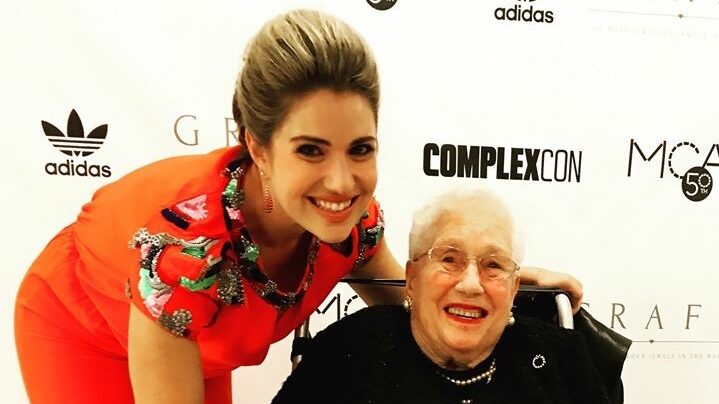Not Throwing Away This Shot
My grandmother prepared our foundation to seize this moment of racial reckoning. Here’s how we’re trying to honor her legacy.

For the past year, the family foundation I chair has spent a lot of time working to clarify our guiding values. As we were working on this effort, I took it upon myself to interrogate my own values and illuminate my own blind spots. Nothing is more important to me than helping grantees seize this moment to advance racial equity, and I don’t want to undermine them in any way. The Nathan Cummings Foundation (NCF) was built from inception for confronting injustice. We and our grantees are committed to continuing this work.
Here’s my story. I grew up with tremendous privilege, and I knew it from an early age. I knew that my dad’s parents, Buddy and Bob, both came from Chicago families that had started successful businesses. I knew that both sides of that family started foundations—and that until my dad died of cancer five years ago, he played a very active role in both of them. At the age when most kids say they aspire to be an astronaut, I told my parents I wanted to be the chair of the Nathan Cummings Foundation—the kind of aspirations that only a child of privilege could hold.
But thanks to Buddy, I did not grow up oblivious to inequity and injustice.
When Buddy’s father, Nathan Cummings, was a failing door-to-door shoe salesman, the whole family’s typical dinner consisted of a thin chicken broth made from a single leg or wing. To the day she died in 2018, she never forgot the feeling of want or lost her sense of gratitude for the abundance that came later.
The truth is, Buddy was just wired for caring. When friends became socialites, she became a social worker. In the 1960s, when others were sun-tanning at the shore, she was traveling to Mississippi to provide on-the-ground support for registering African Americans to vote.
Throughout my childhood, Buddy had a variety of ailments, but she always found the energy for helping others—through philanthropy, through supporting artists, and in ways that only our family could see. While most of us who are Jewish pantomime opening our homes at Passover for the Prophet Elijah, during every holiday Buddy opened her home and heart to people who needed someone to recognize their humanity, oftentimes refugees.

Using Privilege to Empower Others
Buddy is the reason I’m so committed to using my own privilege to empower others, and creating space for anyone to call me out when I’m falling short. Rey Ramsey, NCF’s brilliant interim CEO, has had occasion to school me and so have independent members of our board. For example, in a board retreat last year former trustee and Brown University Professor Tricia Rose laid it on the line in most direct terms: “You’re kidding yourselves if you think you’re solving systemic racism!” We had been patting ourselves on the back and needed to hear that.
My perspective has also benefited from the fact that I’ve sat on the grantee side of the table for most of my career, as a leader in the arts field. In other words, I’ve been on the receiving end of the ugly power differential between funders and grantees (and I’m sure my whiteness spared me from the worst of it). With great partnership from Rey, I’ve helped our board look unblinkingly at these dynamics.
As a foundation, we’ve worked hard to align our values with our practices. Here are some concrete examples:
- We streamlined our application and reporting processes. We now have a better understanding of exactly what information we need from grantees to fuel our own learning—and what’s genuinely useful to grantees.
- We’re now using more tools in the toolkit to advance equity and fairness. We, like almost all foundations, took it as gospel that our endowment was simply a vehicle for generating financial returns we could use for grantmaking. But more than 15 years ago, we began our shareholder activism work. And two years ago, we went all in, committing to align all of our resources—including 100 percent of our endowment—with our mission and values. I’m not talking about applying environmental, social, and governance screens to our investments. I’m talking about dedicating ourselves to wholesale transformation of our approach—from making positive investments in organizations that have social justice at their core to recruiting investment committee members who are intentional about holding equity throughout every step of the investment decision making chain to giving much greater opportunity to Black and Brown fund managers.
- Within the board, we’re diving deep on the historic roots and present-day manifestations of systemic racism. We’re learning just how much all of us have yet to learn.
- We have created more opportunities for the board and executives to hear from grantees as experts, not just grant-seekers. And we show them that we value their expertise by compensating them for their precious time.
- We’ve stopped hamstringing our grantees with unnecessary restrictions on advocacy. We heard from our grantees that we were not having as much influence in our field as we could, because we were not using our voices and not helping grantees use theirs. In 2008, during the fight over Affordable Care Act, we saw that systems change requires getting into the mix to change broken and unfair systems, and we’ve applied that lesson ever since.
Throughout this journey of learning and improvement, my North Star has been my ahead-of-her-time grandmother. If she with still with us, she’d be reminding us that dismantling oppressive systems takes a shocking amount of courage and dedication. I promise we’re up for the fight!
The views and opinions expressed in individual blog posts are those of the author(s) and do not necessarily reflect the official policy or position of the National Center for Family Philanthropy.
